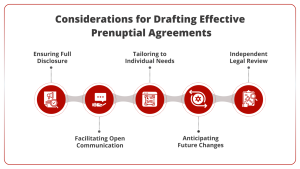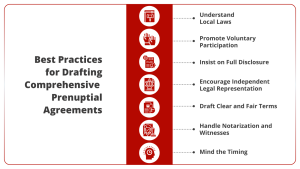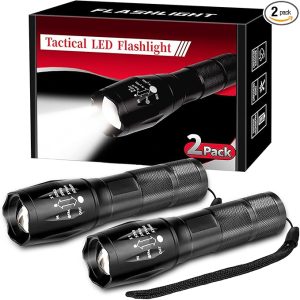Studies show that transparent and fair legal agreements can greatly reduce future conflicts for families after a divorce, especially benefiting the emotional health of the children involved.
A prenuptial agreement, often called a prenup, is a legal contract between two individuals before they marry. This contract outlines the management and division of financial assets and liabilities should the marriage end in divorce.
Staying current with legal developments and best practices is essential for maintaining a high standard of legal practice. Attending Destination CLEs conferences gives insight into emerging legal knowledge and connects you with influential industry figures, keeping your practice up-to-date in a rapidly evolving field.
Attending these conferences can help you meet your CLE requirements and become a better advocate for your clients. They will also deepen your understanding and improve your skills in a supportive and enriching environment.
Prenuptial Agreements for Family Law Attorneys
The primary goal of a prenuptial agreement is to establish clear, agreed-upon terms for handling financial matters, which can prevent future disputes and provide security for both parties involved.
Essential Elements Included in a Prenup Agreement
Assets
This section includes a list that distinguishes the personal assets each individual brought into the marriage and defines the terms for handling assets acquired during the marriage.
Debt
Establishes who is responsible for debts incurred before and during the marriage, providing a clear framework for financial liability.
Inheritance and Gifts
It specifies how to treat personal inheritances and gifts received by either spouse, ensuring that they remain separate from marital assets.
Alimony
This includes whether one spouse will be entitled to spousal support upon divorce, including specifics about the amount and duration.
Other Financial Provisions
It may include clauses on savings contributions, investment strategies, and handling of financial windfalls like bonuses or winnings.
By detailing these elements in a prenuptial agreement, you can help your clients establish a solid and enforceable framework that safeguards their financial interests and supports marital harmony.
Essential Insights for Family Law Practitioners Before Preparing Prenuptial Agreements
Here’s a breakdown of how prenups can be utilized effectively in your legal practice.
Safeguarding Personal Assets
A prenup is important for protecting assets acquired before marriage, ensuring that each party retains their premarital financial identity.
For example, one of your clients may own significant shares in a family business or have substantial real estate holdings before marriage. In that case, a well-drafted prenup can ensure that such assets remain in their possession, unaffected by marital dissolution. This is particularly crucial when business growth or appreciation of personal assets occurs during the marriage, allowing the original owner to retain full benefits.
Clarifying Financial Obligations
A prenup clearly defines each party’s financial obligations and rights, which is essential for setting realistic expectations and preventing future disputes.
For instance, the agreement can specify who will handle mortgage payments or credit card debt, delineating responsibilities that might otherwise lead to conflicts. This level of detail ensures each party understands their financial commitments and contributions, nurturing a stronger, more transparent marital relationship.
Clauses in Prenuptial Agreements
Property Division
Effective property division clauses must be precise, outlining which assets remain individual property and how marital property will be distributed during a divorce.
You can guide your clients in deciding whether assets acquired during the marriage should be managed as joint or separate property. This can significantly streamline property division proceedings should the marriage dissolve.
Spousal Support
Spousal support clauses should detail the conditions under which one party might receive financial support following a divorce, including the duration and amount of such support.
Some agreements include a waiver of spousal support, which must be carefully considered and negotiated to ensure fairness and prevent future litigation.
Considerations for Drafting Effective Prenuptial Agreements

As family law practitioners, here are several essential factors to keep in mind when drafting these agreements:
Ensuring Full Disclosure
A fundamental aspect of drafting a prenuptial agreement is the full disclosure of all assets and debts by both parties. It’s vital that each person transparently shares details about their income, properties, investments, and liabilities. This complete transparency is essential to the agreement’s validity and helps prevent disputes or challenges later.
Facilitating Open Communication
Encourage your clients to openly and honestly discuss their financial expectations and concerns. Effective communication is key to forming a prenuptial agreement that reflects a fair and mutual understanding of future financial management. These discussions should help both partners align their financial goals and set clear expectations for their marriage.
Tailoring to Individual Needs
Each prenuptial agreement should be customized to address the couple’s specific assets, family obligations, and income disparities. As their legal advisor, your role is to ensure that the agreement respects individual circumstances and plans, such as potential career changes, relocations, or plans for children.
Anticipating Future Changes
A prenup should be flexible enough to accommodate changes throughout the marriage. This includes making provisions for significant life events that could affect financial arrangements and ensuring the agreement remains fair and relevant regardless of circumstances.
Independent Legal Review
Lastly, each party must consult with their legal counsel to ensure that both individuals fully understand the agreement’s implications and that it holds up legally. As attorneys, we must provide clear, unbiased advice on the prenuptial agreement to safeguard our clients’ interests.
Best Practices for Drafting Comprehensive Prenuptial Agreements

When drafting prenuptial agreements, follow these best practices to create effective and legally enforceable documents:
Understand Local Laws
Familiarize yourself with the laws and requirements of the state where the agreement will be enforced to ensure the prenup complies with regional statutes and avoids legal pitfalls.
Promote Voluntary Participation
Ensure that both parties sign the agreement voluntarily, without pressure or duress. It’s advisable to have open discussions with each client to confirm their understanding and willingness to agree to the terms. Documenting these conversations can provide additional protection against future claims of coercion.
Insist on Full Disclosure
Advise your clients on the importance of complete transparency in disclosing all assets, debts, and income. This fulfills legal requirements and helps maintain the agreement’s validity if challenged in court.
Encourage Independent Legal Representation
While not mandatory, having separate attorneys for each party can significantly strengthen the prenup’s enforceability. This ensures that both individuals receive fair and unbiased legal advice, making the terms more likely to be upheld in legal challenges.
Draft Clear and Fair Terms
Create clear, reasonable, and equitable terms within the prenup. Avoid overly punitive clauses or ones that heavily favor one party over the other, as these are more likely to be contested or invalidated by a court.
Handle Notarization and Witnesses
Although not always required, notarizing the agreement and having witnesses during the signing can help demonstrate that all legal formalities are respected. This adds a layer of credibility and formality to the agreement.
Mind the Timing
Advise clients to complete and sign the prenuptial agreement well before the wedding date. A rushed agreement, especially one signed under the pressure of impending nuptials, can be viewed as signed under duress.
You can draft more effective prenuptial agreements by clearly outlining the financial terms of a marriage in a thorough and legally sound manner, ensuring they can withstand any challenges if ever contested.
Staying Current in Legal Practice: The Role of Continuing Legal Education (CLE)
As family law practitioners, staying updated on legal standards and statutory changes is paramount to helping your clients effectively. This involves drafting documents like prenuptial agreements with precision and ensuring you’re aware of evolving legal landscapes that could affect these agreements. Law practice is dynamic, with frequent updates to regulations and best practices. Engaging in continuous professional development is crucial.
Why Continuous Learning is Essential
The legal environment is continually changing. New legislation, case law developments, and procedural updates occur regularly, impacting how legal documents are prepared and enforced.
By attending CLE conferences by Destination CLEs, you stay updated with the latest in legal practice and enjoy. From accommodations to cultural tours, we ensure you focus on learning and networking without the hassle of trip planning.
Enhance Your Legal Expertise in Stunning Locations with Destination CLEs

Destination CLEs redefine the way legal professionals meet their continuing education requirements. Our conferences blend educational opportunities with cultural immersion in some of the world’s most captivating cities.
Why Choose Destination CLEs?
- Meet CLE Requirements: Fulfill your mandatory CLE credits through engaging, high-quality seminars in stunning global locations.
- Transformative Learning: Turn the usual lecture-based learning on its head by engaging in sessions as dynamic as the destinations.
- Networking Opportunities: Connect with peers worldwide, expanding your professional network in settings that encourage collaboration and growth.
- All-Inclusive Experience: Enjoy comprehensive packages that cover educational sessions, accommodations, and unique cultural experiences, making your learning adventure seamless and memorable.
- Efficient Credit Earning: Earn required CLE credits efficiently, with schedules that balance professional development and exploration.
Plan your next educational journey with Destination CLEs and ensure extraordinary professional development. Our 2024-2025 lineup includes diverse locales such as Lisbon, Puerto Vallarta, Dubai, Havana, and an Alaska Cruise—each offering a distinct blend of legal education and local culture.
Secure your spot today and become part of a community dedicated to professional growth and networking.
DestinationCLEs.com is a participant in the Amazon Services LLC Associates Program, an affiliate advertising program designed to provide a means for sites to earn advertising fees by advertising and linking to Amazon dot com.












